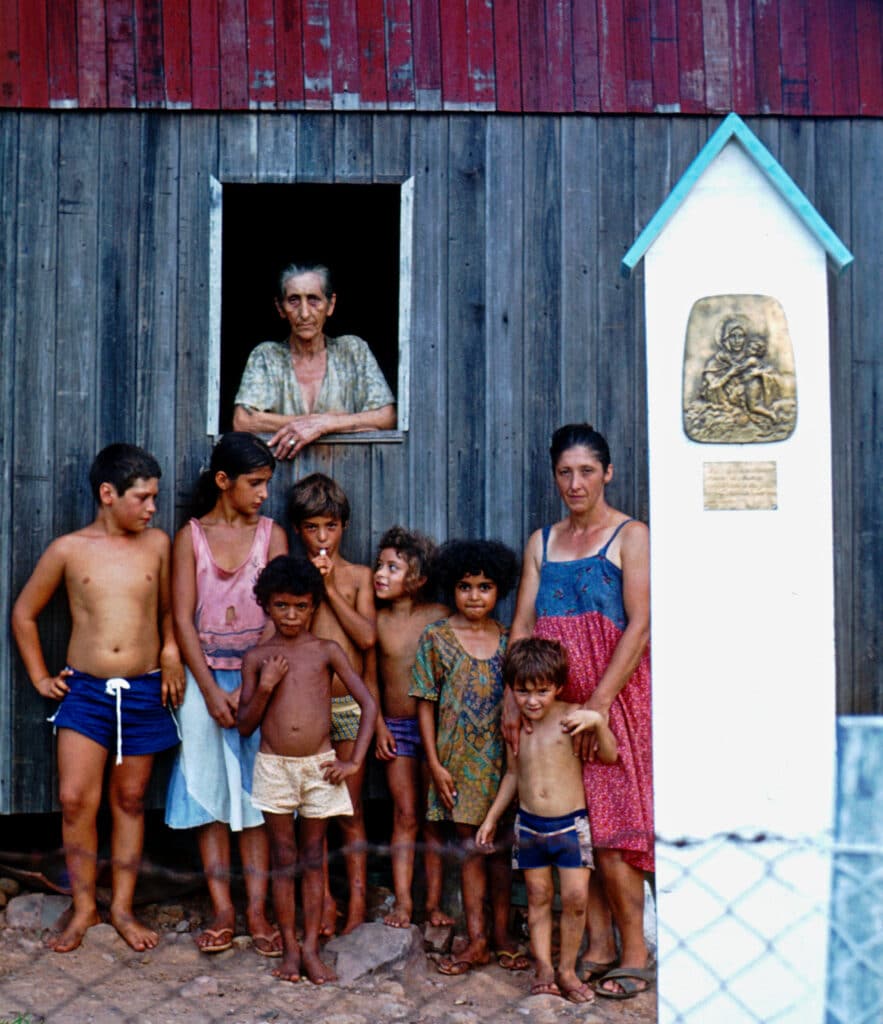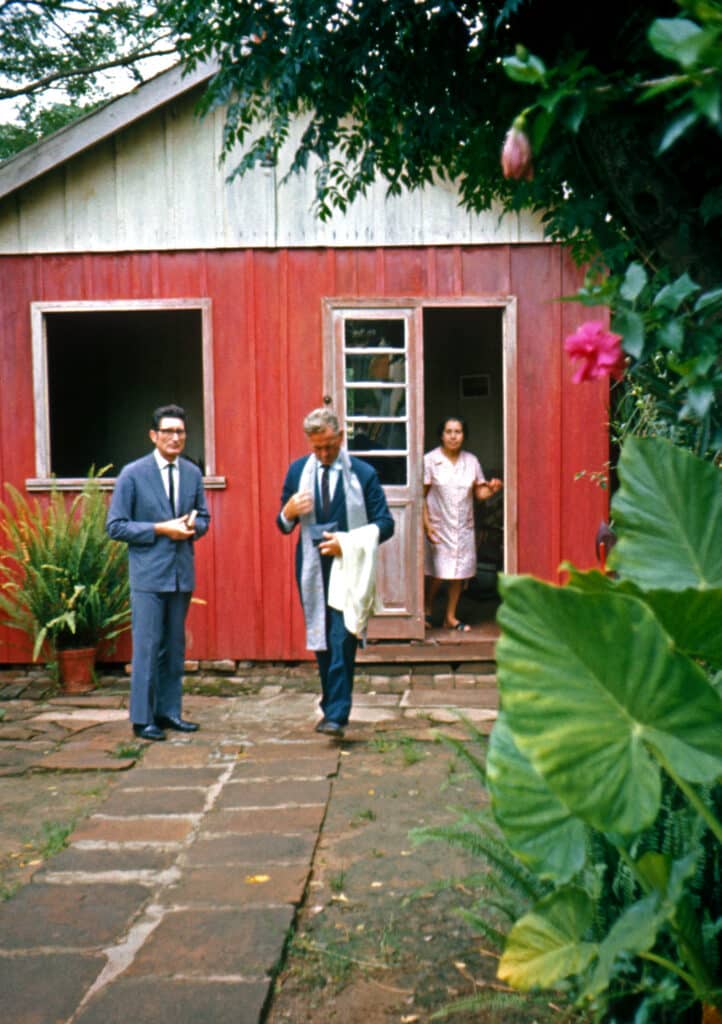Whoever knows about the life and work of the Servant of God John Louis Pozzobon knows that he worked with families through his Pilgrim Mother Apostolate. What is perhaps less known is a characteristic of his work “with” and “on behalf of” the families, which helps us to understand the fruits of his work.
Pozzobon was one of those uncomplicated people who simplify situations and approaches to life which others tend to complicate. That is why we often find him dealing with families in complicated situations, guiding them towards simplified solutions.
Let’s look at an example…
One day the Pilgrim Mother was about to visit a very poor little ranch where a woman lived with her two granddaughters. Due to lack of space, the woman decided to leave the ranch at the Blessed Mother’s disposal and spend the night in the pen with the goats, which were her only possession. Pozzobon heard about this incident from the owner of the ranch herself and came up with an idea.
Pozzobon said, “Shall we build a little chapel?”. But the woman replied: “With what money…? we are poor”. And John thought the same thing: “I don’t have anything myself either”. Then John pondered for a moment and said, “Isn’t there enough grass to cover the little chapel?” Said and done.
The peasants got together, gathered material and a lot of grass, and thus the “grass chapel” was built. This building was later rebuilt and covered with shingles, and became known as the “blue chapel” because of the color of its paint.
And he did not stop there: next to this chapel, Pozzobon began to build simple wooden houses to lodge people who had no homes; he built one per year. This is how his most important social project, the Noble Villa of Charity, was born.

How did he achieve all this?
John was quite observant. Since he was a child, he had observed the neighborhood around his parents’ house. He observed the life that developed in the community, marked by deep-rooted devotions, which were expressed in defined and long-lasting traditions. And he observed the families, his own and those of others. Once married, he began to educate his children; his keen observation skills led him to record things about his children in a notebook (once again, the plain and simple!), in order to monitor their development better.
At the beginning of the Apostolate, when he began to take the MTA picture to the families, John went every night to the houses where the image went. He observed what happened during the visit of the Blessed Mother. After the time foreseen for this mission had passed, John did not return the image, he did not stop. He argued: I have seen so many graces poured into the families, how could I stop the Blessed Mother’s visit!
His faith – that light that makes us see more than what we see with the naked eye – made him realize the needs and longings of people’s hearts. And it taught him to trust in Our Lady, who will always provide help when needed. Help that will not always consist of solutions in the immediate sense of the word, but rather answers that faith offers to open minds and hearts to God’s plan of action, even in suffering and adversity.

Observing life around him
John’s ability to observe was not limited to perceiving situations and realities. By regularly visiting many families, he was able to compare the circumstances over time and see where there was development. Moreover, in his long walks with Our Lady, and in dialogue with her, he found ways to help and inspiration for his work on behalf of the families. He drew his own conclusions about families, the Church and life. And he applied them with determination.
That is why his commitment to families was not limited to the religious aspect. He soon realized that he also had to help many families on the human, social and economic aspects. And he developed initiatives along these lines. Pozzobon thus became a great promoter of the family.
And what did he promote in families?
Pozzobon promoted the sanctification of families, leading them to sacramental life and to a life of prayer. In this sense, his observation of the pastoral reality of the Church of his time also led him to take action, because he realized that priests were not reaching certain regions, either for lack of time, or for lack of adequate pastoral resources for the faithful.
He repeatedly expressed his desire to help parish priests. And this help became so intense that he longed for – and lived – a fruitful ministry as a permanent deacon, so that his pastoral work would focus even more on the sacraments and the proclamation of the Gospel to families.

In the area of human and social promotion, Pozzobon awakened a sensitivity for values, excelling – especially in his central social initiative, the “Noble Village of Charity” – in the promotion of attitudes conducive to the unity of the family and its integral development, based on a growing self-initiative. He knew how to bring out the best in people.
With his pastoral and social initiatives – inspired by the pedagogy of Schoenstatt’s founder, Father Joseph Kentenich – he promoted human dignity. And, once again, simplicity must be emphasized. Dignity is something inherent to the individual, it does not require certain rules of life to be experienced. It begins by knowing oneself, by recognizing oneself as a beloved child of God and a brother among brothers and sisters.
Finally, Pozzobon promoted the mission of the family. The Apostolate increasingly brought families together to be messengers of the family, and he was also committed to the visit of the images to the families, thus experiencing a concrete form of missionary activity. Once again, John’s ability to observe helped him. What he had experienced in the family tradition, together with what he was experiencing in the development of the Apostolate, stirred his pastoral creativity in various initiatives that are still alive today in favor of the families.
In short, what Divine Providence brought about in the life of this Servant of God, and what he continues to inspire in the Apostolate, wants to teach us that the main thing is not the quality of the resources, but the way we look at them. In this, Pozzobon followed the Lord and we can follow him as well.
Translation: Maribel Acaron
